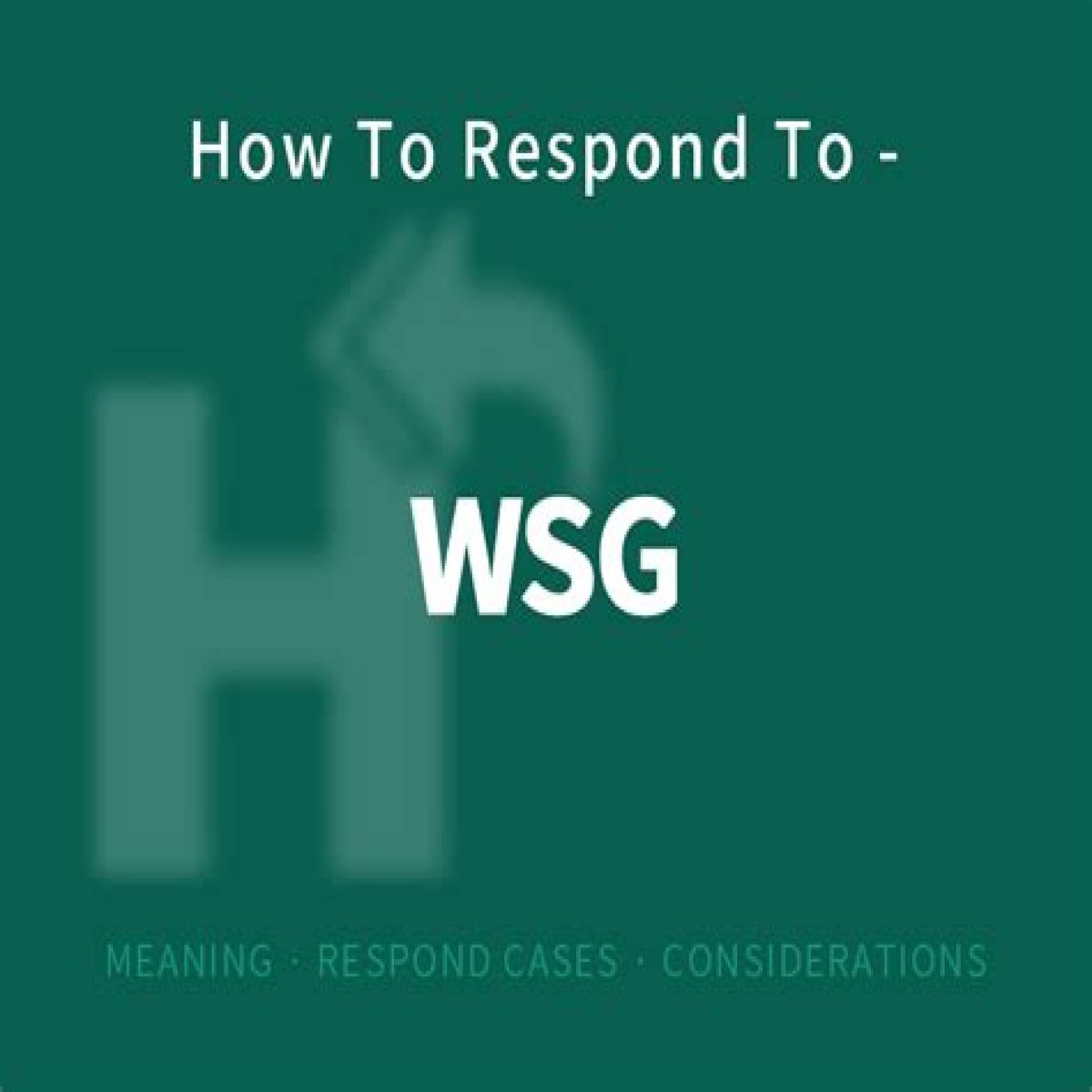In the ever-evolving world of digital communication, new acronyms and slang terms continuously emerge, reshaping the way we interact. One such term that has gained popularity in recent years is "WSG." Understanding the "wsg meaning in text" is essential for anyone looking to navigate contemporary conversations effectively. This article will unravel the intricacies of this acronym, offering insights into its origin, usage, and relevance in today’s communication landscape.
WSG stands for "What's Good," a casual greeting that conveys a sense of friendliness and openness. It's often used among friends or acquaintances to check in or initiate a conversation. As social media and texting have become predominant forms of communication, phrases like WSG have become increasingly common, reflecting a shift towards more informal interactions. The phrase encapsulates not just a question but also a vibe—a way of saying, "Hey, I'm here. Let’s talk!"
The significance of understanding the "wsg meaning in text" extends beyond mere vocabulary. It highlights a cultural shift towards brevity and informality in communication. As we explore the various aspects of WSG, we will also delve into its implications in different contexts, how it compares to other similar phrases, and what it reveals about the evolution of language in the digital age.
What is the Origin of WSG?
The acronym WSG, or "What's Good," has its roots in urban slang, often associated with African American Vernacular English (AAVE). It emerged as a casual way to greet someone and has been widely adopted across various demographics, particularly among younger generations. The phrase reflects a cultural trend towards informal and friendly communication, often found in text messages, social media posts, and casual conversations.
How is WSG Used in Text Conversations?
When it comes to using WSG in text conversations, context is key. Here are some common scenarios where you might encounter this term:
- As a greeting: "Hey, WSG?"
- To check in on someone: "WSG? How have you been?"
- As a way to initiate a conversation: "WSG? Got any plans this weekend?"
Its casual nature makes WSG a versatile phrase, suitable for various social contexts, from friendly chats to informal work communications.
Are There Variations of WSG?
Yes, there are several variations and alternatives to WSG that convey similar meanings. Some of these include:
- WYD (What You Doing?)
- WYA (Where You At?)
- Wassup (What's Up?)
Each of these alternatives carries its own nuances, but they all share a common goal: to initiate a conversation in a relaxed manner.
Why is WSG Popular Among Young People?
The popularity of WSG among young people can be attributed to several factors:
- Social Media Influence: Platforms like Twitter, Instagram, and Snapchat have popularized such slang, making it a part of everyday language.
- Cultural Trends: The rise of informal communication styles has led to the acceptance of acronyms and abbreviations in casual interactions.
- Connection: WSG fosters a sense of camaraderie and connection, making it a go-to phrase for checking in with friends.
How Does WSG Compare to Other Greetings?
When comparing WSG to traditional greetings like "Hello" or "Hi," several differences emerge:
- Informality: WSG is much more casual and relaxed.
- Contextual Use: It's typically used among peers rather than in formal situations.
- Cultural Relevance: It reflects contemporary social dynamics and language evolution.
This comparison highlights how language adapts to reflect social changes and preferences.
Can WSG Be Misinterpreted?
While WSG is generally understood in casual contexts, there are instances where it might be misinterpreted. For example:
- If used in a formal setting, it might come off as unprofessional.
- Not everyone may be familiar with the acronym, leading to confusion.
Being aware of your audience is crucial when using phrases like WSG to avoid misunderstandings.
What Does WSG Reveal About Modern Communication?
The rise of WSG and similar phrases signifies a broader trend in modern communication:
- Shift towards Informality: Language is becoming more relaxed and conversational.
- Emphasis on Brevity: Acronyms and slang facilitate quicker communication.
- Cultural Exchange: Language is influenced by various cultural dynamics, reflecting diversity in communication styles.
Understanding these trends helps us appreciate the evolving nature of language in our daily interactions.
Conclusion: Embracing the WSG Meaning in Text
In conclusion, grasping the "wsg meaning in text" is more than just understanding a slang term; it’s about recognizing the evolving nature of communication in our digital age. As language continues to adapt, phrases like WSG serve as a reminder of the importance of context, connection, and cultural relevance in our conversations. So, the next time you receive a text that starts with "WSG," you’ll be well-equipped to engage in a friendly and meaningful exchange.
Raise Your Glass: The Best Toast Quotes For Every OccasionUnraveling The Age Of SpongeBob SquarePants: How Old Is The Show?Unveiling The Mystery Behind 21 Savage's Full Name
